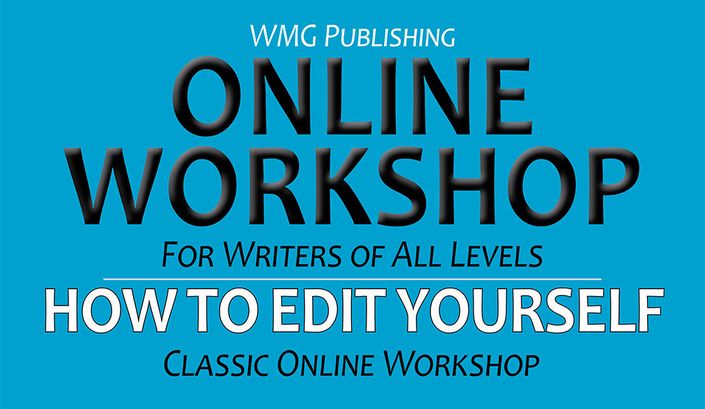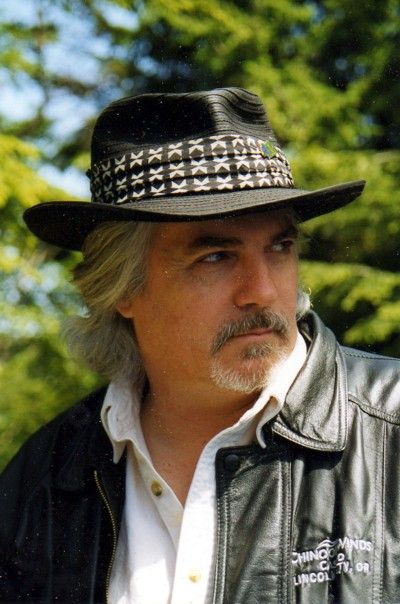
Editing Your Own Work Classic Workshop
A class to help you save time and energy on rewriting and editing and also help you save your stories.
How do you get clean manuscripts without spending a fortune and ruining your story?
How do you avoid rewriting yet get your story to the best it can be?
This workshop tackles those two major questions and a ton more.
Kris and I get the most questions, all good questions for the most part, about the process of editing your own work. And honestly, there is no easy or completely right answer for everyone. But there are hundreds of ways, one of which will be right for you.
Between writing into the dark and following Heinlein's Rules, how do you make sure your work is what you want, clean enough for readers to not notice any problems?
How can you edit without the deadly rewriting that kills voice and all originality?
Those are just a couple of the questions we get in one form or another, including how to find copyeditors, first readers, and so on.
Basically, how to maintain control over your own work and yet get it clean. That is what every smart writer is looking to do these days.
So finally, after much hesitation (as you might imagine), we put it all together in a very intense and informative six week online workshop to help all levels of writers.
If you are just starting off or are an experienced professional wondering how to spend less time on the editing process, this workshop will help you.
Here are just some of the areas we are going to cover.
-- The process. How to write cleaner copy right from the start.
-- Do's and Don'ts of finding help.
-- The finding and feeding and care of copyeditors. What to look for and how to talk with them.
-- The finding and feeding and care of first readers. Again, what to tell them you are looking for and what you are not looking for.
-- How to edit in creative voice. Yes, this includes cycling and there are tricks.
-- How to keep your voice in your work. And recognize when you are taking it out.
-- How to edit without breaking Heinlein's Rules of never rewriting.
-- How to write into the dark, without outline, and still create a process that is clean.
-- How to deal with audience and reader feedback.
At least a hundred tricks and techniques of professional writers in this area. Not kidding (we will try to get to that number over the six weeks). We have collected a lot of information about not only how we do it, but how other writers do this. It is a puzzling area for many writers and an area writers often stumble into trouble.
And it is a huge area that covers a lot of ground. This is not a how-to-rewrite workshop. This is how to edit your own work before getting it to readers. If you do not understand the difference, you really need this workshop.
Longer term writers have developed ways that work and keep voice and story in place while making sure the typing and manuscript is as clean as it can be for readers.
Writers often have their stories killed and their voice taken out by simply trying to clean up their manuscript. We will teach you how to avoid those critical mistakes. And help you find a way that other professionals use that will work for you.
More than likely this will be our most intensive information workshop yet.
No matter what is said in the video, this is a classic workshop, so please do not send in any assignments. But it is a good idea to do them for yourself to get the most out of the workshop.
Your Instructor

With over twenty-three million copies of his books in print, USA Today bestselling writer Dean Wesley Smith now brings you original fiction every month for the past three years in his own magazine, Smith’s Monthly.
Dean wrote over twenty-five original Star Trek novels, the only two original Men in Black novels, plus Spider-Man, X-Men, Iron Man novels, and others. He wrote many gaming novels including Final Fantasy.
He wrote novels and stories under almost fifty pen names and did scripts for Hollywood as well as being an editor for various magazines. He lives in Las Vegas with his wife, writer Kristine Kathryn Rusch. You can follow his writing life at www.deanwesleysmith.com
Course Curriculum
-
StartEditing Week #1, Session #1... No right way. Keep all decisions in your control. (6:07)
-
StartEditing Week #1, Session #2... Story brain vs. critical brain. (6:45)
-
StartEditing Week #1, Session #3... What is failure? (5:08)
-
StartEditing Week #1, Session #4... The extreme and deadly danger of perfection. (4:57)
-
StartEditing Week #1, Session #5... Focus on the fun of both storytelling and the publishing process. (6:35)
-
StartEditing Assignment #1 (2:13)
-
StartAssignment #1 Response (5:04)
-
StartEditing Week #2, Session #1... Unlearning things non-writers taught you. (6:06)
-
StartEditing Week #2, Session #2... Story in your head vs the tool of the manuscript. (6:36)
-
StartEditing Week #2, Session #3... Stop writing sloppy. (6:13)
-
StartEditing Week #2, Session #4... Cycling. Allows you to fix in creative voice. (6:27)
-
StartEditing Week #2, Session #5... Outlines and a pathological need for "ideas" both come out of fear (7:18)
-
StartEditing Week #2, Assignment #2 (3:46)